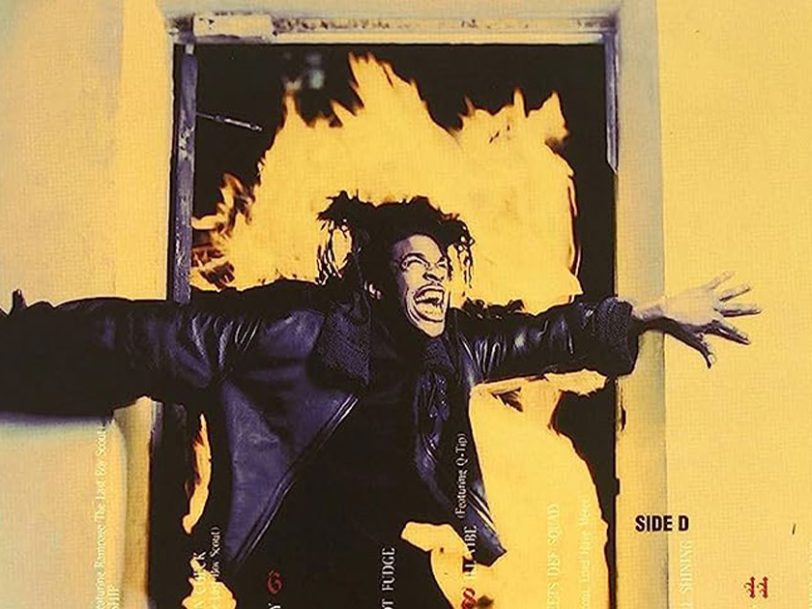By 1993, after releasing two albums, Leaders Of The New School disbanded following an ill-fated appearance on an episode of Yo! MTV Raps. With his raspy and bombastic rapping style, however, it wasn’t long before Busta scored himself a solo record deal with Elektra Records. Opting to establish his own production crew, Flipmode Squad, Busta set about working on his debut album, The Coming, seizing the opportunity to bring together everything he had learnt to date. The time had come for him to bring the ruckus.
The recording: “I just let the music inspire the way that I would flow”
After starting work on his first solo album towards the end of 1994, recording in Los Angeles, Busta Rhymes flew back to New York and spent his time in three different recording studios: The Mix Palace, Nipskab Lab and Soundtrack. Supplying him with beats were a number of different producers, notably DJ Scratch; Q-Tip’s music collective, The Ummah; Easy Moe Bee; Rashad Smith; The Vibe Chemist Backspin; and Rick St Hilaire. Careful not to lose any memorable lines, Busta wrote his lyrics in the studio and made sure everything was noted down on paper.
Nothing was left to chance: each zany vocal tic and outlandish outburst was entirely pre-planned long before he stepped inside the recording booth. “I just let the music inspire the way that I would flow and how I would attack the record,” Busta later said in an interview with The Ringer. Inspired by a philosophy taught to him by Chuck D, Busta set about ensuring his debut album was anchored by an overarching concept. “It was called CLAMP: Concept, Lyrics, Attitude, Music and Performance,” Busta explained in an interview with GQ. “I live by that to this day. That has never failed me.”
Busta intended for The Coming to be a bold statement for the world of hip-hop: a prophetic work that warned of a looming catastrophe, with a style that put a more surreal and cartoonish spin on socially conscious lyricism. Not only did he want his debut album to resonate with fans of Wu-Tang Clan’s gritty underground sound, but he also wanted it to hark back to the playful output of the Native Tongues Posse, gesturing towards hardcore themes while leaving mouths agape with his tongue-twisting flair.
The album’s lead single, Woo-Hah!! Got You All In Check, was released in January 1996 and blew up on MTV thanks to a joyously bizarre music video directed by Hype Williams, who would also soon help bring Missy Elliott’s vision to life with a string of Supa Dupa Fly clips. Sporting dreadlocks and wearing a range of outrageous outfits, Busta channelled the otherworldly fashion choices of his 70s funk inspiration, George Clinton of Parliament-Funkadelic, while letting loose with a madcap flow that drew upon the style of Jamrock toasters. “I’m of Jamaican descent,” Busta told GQ, “so reggae and dancehall culture, this is what I was raised on.”




